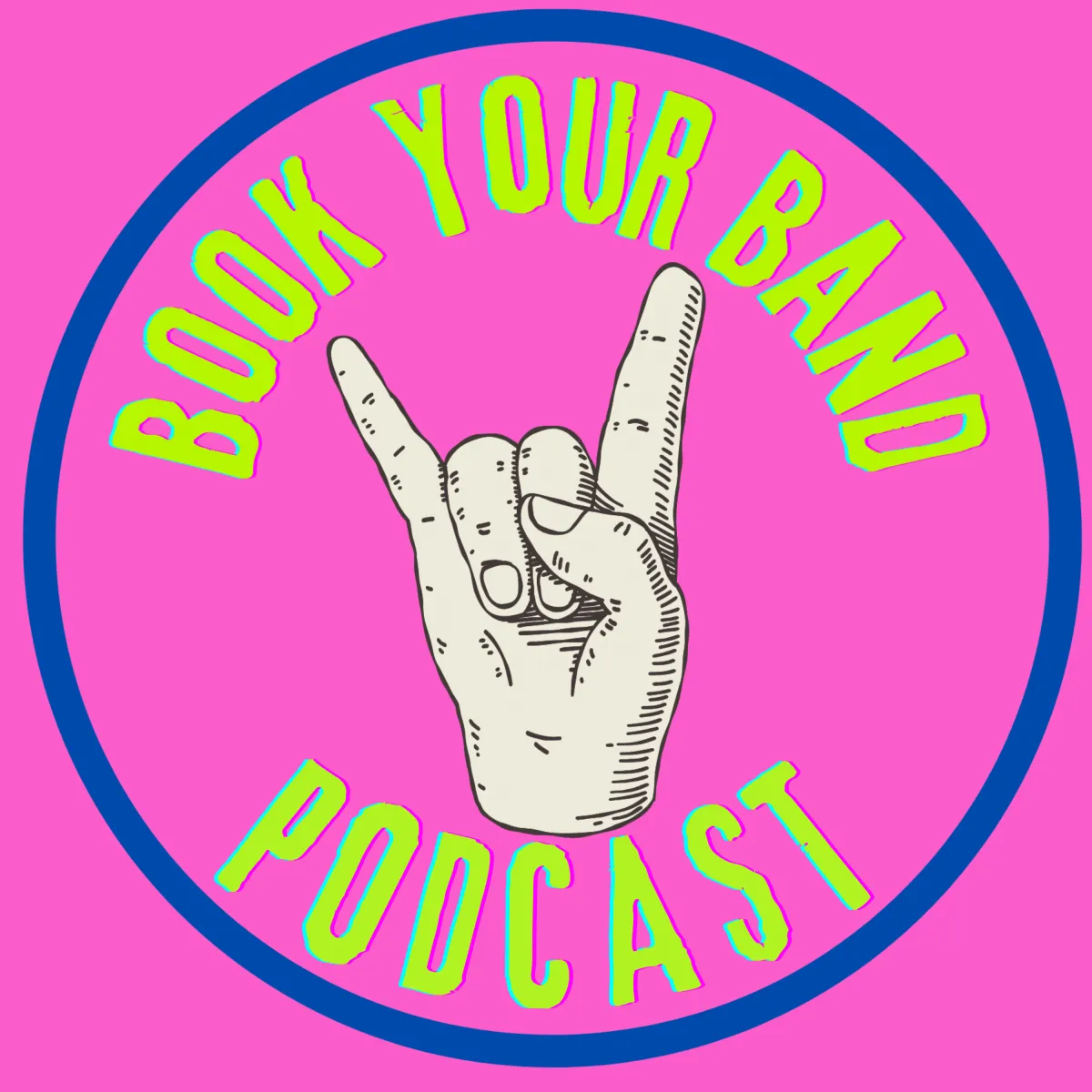
House Shows 101: Everything You Need to Know to Start Booking House Shows
House Shows 101: Everything You Need to Know to Start Booking House Shows

House shows are live music performances that take place in the cozy, intimate setting of a private space—be it a living room, a backyard, or any place that feels like home. This form of live music is gaining traction not only among emerging artists, but also with well-established musicians like Derek Webb, who have shifted to playing almost exclusively house shows.
In a recent episode of "The Book Your Band Podcast," guests The Darkwaters Project shared that some musicians are now earning six-figures annually through house shows alone. House shows are low-stress, profoundly intimate, and can be incredibly profitable, offering a direct and personal way for artists to connect with their audience without the barriers of traditional concert venues.
Despite its growing popularity, the concept of house shows remains underutilized by many artists, possibly due to misconceptions about what venues are appropriate. The term "house show" can be misleading—it doesn’t strictly need to be a house. Any unconventional and inviting space, like a cool barn, an art gallery, or even an old factory, can transform into a vibrant venue for a night of live music. This flexibility opens up endless possibilities for artists looking to cultivate a closer relationship with their fans and create memorable, one-of-a-kind live music experiences.
How to Book a House Show: 4 Proven Strategies
When I posted about artists missing out on money by not playing house shows on my TikTok channel, several other users left comments wondering how exactly you can book one. There are four effective ways to secure a spot at a house show, whether you're looking to host one yourself or find a space where you can perform:
Host Your Own: If you have access to a suitable space, why not host a show yourself? Your living room, backyard, or even a spacious deck can serve as the perfect intimate venue for your performance. This puts you in control of the atmosphere and the guest list, making it a very personalized music event.
Leverage Your Network: Do you know someone with a great space who loves music? Ask them if they would be interested in hosting a show. They can invite their friends, and you can bring yours, creating a community vibe that’s hard to replicate in traditional venues.
Connect with Local Hosts: Utilize the power of the internet to find existing house show hosts in your area. A simple search on Google or Facebook with terms like “house concerts” or “house shows” along with your city name can reveal local music lovers who regularly host events. For instance, in Chattanooga, places like Hollis House Live have become known for their vibrant shows, hosting artists who have later graced stages as prestigious as Red Rocks and The Ryman Auditorium.
Join a National House Show Registry: Websites like Concertsinyourhome.org serve as platforms for artists looking to get involved in the house show circuit. Registering with such sites can increase your visibility to potential hosts and help you find more opportunities. However, be aware that some of the most sought-after circuits can be booked up to two years in advance, so planning ahead is crucial.
Maximizing Revenue at Your House Show
Now that you've booked a house show, it's important to consider how you can make it financially rewarding. There are several effective strategies to ensure you not only cover your costs but also potentially boost your earnings:
Flat Rate for Private Events: One straightforward way to earn from house shows is to negotiate a flat rate with the host. This model treats your performance as a private event, where the host pays you a set amount to play. This can simplify financial arrangements and provide guaranteed income.
Ticketed Events: Another option is to organize the event as a ticketed show. You can sell tickets either through your own website or through the host’s platform. This method allows you to predict earnings based on ticket sales and helps in planning your performance scale and extras.
Suggested Donation: I personally recommend this model for its flexibility and potential for exceeding expectations. Set a "suggested donation" amount for attendees, and visibly place a tip bucket for physical donations at the venue. Additionally, displaying printouts with QR codes for Venmo, CashApp, PayPal, etc., makes it easy for guests to contribute digitally. Often, attendees are willing to give more than the suggested amount, especially when they feel a strong connection to the performance.
Merchandise Sales: Never underestimate the power of good merch at house shows. Many artists report significantly higher merch sales at these intimate events compared to small and mid-cap venues. The personal connection you forge with the audience during a house show often translates into merch sales. They don’t just see you as another artist; they connect with you on a personal level, which can inspire them to purchase something as a memory of the experience.
Essential Considerations for Artists at House Shows
Performing at a house show can be a unique and enriching experience, but it also comes with its own set of logistical considerations. As an artist, being prepared can make the difference between a smooth event and potential challenges. Here are some key points to keep in mind:
Venue Specifics: Understand the specifics of where you'll be performing. Is it a cozy living room, or are you set up under a tree in someone's backyard? Each setting requires different preparations in terms of acoustics, setup, and performance style.
Parking and Load-In Instructions: Clarify where you should park upon arrival. Knowing this in advance can save you time and prevent any last-minute confusion. Similarly, ask about the load-in area. Where does the host expect you to bring in your equipment? This helps in planning how much gear you can realistically bring and manage.
Load-In Assistance: Check if there will be someone to help you with loading in and out. If not, you may need to bring an extra pair of hands, especially if you have heavy or cumbersome equipment.
Barriers to Entry: Ask about any potential barriers such as gate codes, steps, narrow doorways, or other obstacles that could complicate loading in. Being forewarned allows you to prepare adequately and avoid surprises.
Sound Equipment: Inquire whether the hosts will provide a PA system, and if so, get details about the equipment. You’ll need to know whether to bring any of your own gear like microphones or cables. If it’s an unamplified show, plan your setup accordingly to ensure that your sound reaches the entire audience.
Legal and Insurance Considerations: As you plan your house show, it's essential to be aware of the legal and insurance aspects that might affect your event. This includes checking if you or the host need any specific permits for public gatherings or music performances and considering liability insurance to cover any potential accidents or damages. Ensuring that these elements are addressed can prevent legal issues and ensure that both you and your audience have a safe and enjoyable experience.
Tailoring Your Rider for a House Show
House shows require a different approach to your standard performance rider, due to their unique and intimate nature. Here's how to update your rider to ensure both you and your hosts are well-prepared for the event:
Arrival and Departure: Clearly state how early you plan to arrive before the show starts and how long you will stay afterwards. This time allows you to set up, interact with the audience, sign autographs, take pictures, and sell merchandise.
Weather Contingency: If the event is outdoors, include specific provisions for bad weather. Make it clear that performing in the rain is not feasible. Some performers choose to avoid outdoor events altogether to sidestep these issues.
Performance Duration: Specify the length of your set, typically around 90 minutes, so hosts can plan the event schedule accordingly.
Payment Terms: Define when and how you expect to be paid—this is crucial and should be agreed upon well before the event to avoid any awkward post-show discussions. Include acceptable payment methods such as cash, Venmo, CashApp, PayPal, and whether payment should be made before or after the show.
Performance Needs: List any specific requirements you have for your performance, such as a small table for water, access to power, or honey for tea. These small details can significantly impact your comfort and quality of your performance.
Merchandise Area: Ensure that there will be a designated area for you to display and sell your merchandise. This is often a significant revenue source and needs proper space and visibility.
Private Space: Request a private area, often referred to as a green room, where you can prepare before the show and unwind afterwards. This could be any quiet room, such as a bedroom, den, or office.
Recording Policy: Address the modern challenges of digital streaming and unauthorized recording. You can request that performances not be recorded, or if they are, specify how they should be shared on social media, including preferred tags and mentions.
Technical Requirements: Clearly list any equipment you will bring, such as a vocal microphone or DI box, and what you need from the host, like a surge protector with at least two outlets, a boom mic stand, and XLR cables.
What to Expect at a House Show: A Performer's Guide
House shows offer a distinct atmosphere that can vary greatly from one event to another, depending on the host and the setting. Here’s what you can typically expect and how you can best prepare for these performances:
Audience Arrangements: The setup for seating can differ widely. You might find your audience standing, sitting on chairs, or even lounging on the floor. Be adaptable and ready to perform in whichever arrangement you encounter.
Attentive Audiences: House show audiences are usually more attentive compared to those at larger venues. This setting resembles a "listening room," making it a perfect opportunity to share more personal stories and perform softer, more nuanced songs that might not suit a noisy, bustling environment.
Engagement and Promotion: Use this intimate setting to enhance your fanbase. Remind attendees to sign up for your mailing list and follow you on social media throughout the event. Consider incentivizing sign-ups with a merchandise giveaway, which can boost interaction and ensure you leave with a list of engaged fans.
Acoustic Dynamics: Many house shows are unamplified, which means you need to manage your vocal output carefully to avoid straining your voice. Plan your set to gradually build up in intensity without overwhelming your vocal cords too early.
Post-Show Protocol: After the show, plan to stay around for about 30-45 minutes to engage with the audience, sell merchandise, and then pack up.
Follow-Up: Sending a handwritten thank-you note to your hosts can leave a lasting impression and foster a relationship for future gigs. Additionally, a quick email to new mailing list subscribers thanking them for their attendance and encouraging them to share your music on social media can help maintain the momentum from the show.
Wrapping Up
As we’ve explored, house shows offer a unique and rewarding opportunity for artists at any stage of their career. These intimate settings not only allow for a deep, personal connection with your audience but also present practical ways to enhance your earnings through merchandise sales, donations, and more structured ticketing approaches. The flexibility in venue choice—from living rooms to art galleries—ensures that each show can be a unique experience, reflective of both the artist's and the host's personalities.
For those of you looking to dive deeper into the world of live performances and refine your skills in booking and playing gigs, I highly recommend subscribing to the "Book Your Band Podcast Garage to Stage Crash Course." This FREE online training is designed to equip musicians with the necessary tools and insights to book their first paying gigs successfully. It’s a fantastic resource whether you're just starting out or looking to expand your current gig repertoire.
SIGN UP FOR THE BYB MAILING LIST TO GET EPISODE UPDATES



Facebook
Instagram
Youtube
TikTok